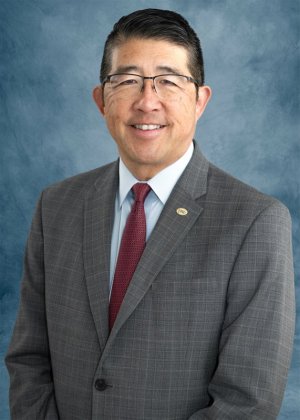Federal cuts expected to hit Sussex healthcare hard
Some local healthcare leaders say cuts in President Donald Trump’s “Big, Beautiful Bill” could hit especially hard in Sussex County, where a physician shortage and a rapidly growing senior population already make it difficult for many to get care.
The bill, narrowly passed last week in the House of Representatives, contains cuts to Medicaid, Medicare and other healthcare programs. That is in addition to sharp reductions in recent months to research funding and agency staffing.
The legislation is expected to face a fight in the coming weeks in the Senate, which returns this week from a recess.
The bill would cut Medicaid, Medicare, the Affordable Care Act and the Supplemental Nutrition Assistance Program, a food subsidy commonly known as SNAP.
The bill would also roll back an expansion of Medicaid initiated under the Affordable Care Act that would affect 40 states, including Delaware.
“So even though there may be details that are unclear with respect to how this will go, we know that there will be changes and cuts in Medicare and Medicaid,” said Dr. David Tam, president and CEO of Beebe Healthcare. “Whether the cuts are benefit cuts or whether they are cuts related to financing of programs is the challenging issue. We know that if the Medicaid cuts go into effect, based on the House budget that was passed, 40,000 Delawareans will lose insurance coverage.”
Medicare cuts would have a significant effect in Sussex County, Tam said, as a larger-than-average percentage of residents are covered by Medicare because many people are moving to the area to retire.
Delaware stands last among states nationwide for access to primary-care physicians, meeting the needs of only 14.85% of its residents, according to figures released in February.
Tam and Kyle Benoit, chief operating officer of Bayhealth, said medical residency and fellowship programs are being initiated to increase the number of physicians in Sussex County. Tam has also supported the creation of a medical college in the county to draw more doctors to practice here.
Benoit said Bayhealth is considering ways to reduce its expenses to adjust to federal cuts.
“Where do we have to gain efficiencies to account for that increase in uncompensated care?” Benoit said. “We have to be ahead of the curve.”
Cuts to Medicaid will keep more people from getting preventative care, which increases the need for more expensive care when health problems go untreated, said William Albanese, CEO of healthcare provider Atracare, which specializes in preventative care.
For example, Ablanese said, a heart medication could cost $10 per month, compared to a $10,000 to $15,000 bill for treatment after a heart attack.
Proposed Medicaid work requirements may make it harder for some patients to get to doctor appointments, he said.
“It’s already difficult for these individuals,” Albanese said. “Creating more barriers will not help anyone. It will not drive down costs.”
He said cuts made recently to federal agencies will likely cause long-term harm.
Research funds for bid flu and other health risks have been slashed and the federal government stopped releasing data monitoring public health risks that physicians need to be aware of to provide proper care, Albanese said.
These changes leave the country less prepared for the next widespread health risk like COVID-19, he said.
Loss of Medicaid and Medicare for some people will put financial strain on Beebe and Bayhealth, two nonprofit hospitals that cannot turn away anyone who cannot afford care, Tam and Benoit each said.
“As a nonprofit, we don’t ask people for their insurance when they come into the ER,” Tam said. “We don’t do that even when they come to one of our clinics. Even though we’re a nonprofit, eventually too much of that means we do not have the resources necessary to do the work that we want to do.”
Adding to the problem, Delaware also has a lower health insurance reimbursement rate for physicians than neighboring states, Tam noted.
Tam said tariffs will also increase costs.
“The healthcare inflation index is actually higher than the regular sort of consumer price index inflation,” he said. “What that means is healthcare costs in terms of pharmaceuticals, equipment, even construction equipment, supplies all will go up. So those are all the things that will be challenging not just Beebe, but also everyone else in healthcare.”
The federal government is shifting from traditional Medicare, a federal fee-for-service program that pays the cost of hospital stays or doctor visits, to Medicare Advantage, which is offered through private insurance companies, Tam said.
Medicare Advantage requires Beebe and other providers to bill both Medicare and the private insurance companies, complicating and slowing processing of bills.
Medicare already pays just 88% of the cost of service, Tam said.
People’s health will worsen without preventative care, leaving them to eventually seek far more expensive emergency room care, Tam said. When people can’t afford the cost of that care, it falls to the hospitals to absorb.
Albanese said federal budget cuts and other reductions in federal support will have serious consequences.
“In the end, it will result in a reduction in average lifespan for Americans if we keep taking bites out of healthcare spending,” he said.
Kevin Conlon came to the Cape Gazette with nearly 40 years of newspaper experience since graduating from St. Bonaventure University in New York with a bachelor's degree in mass communication. He reports on Sussex County government and other assignments as needed.
His career spans working as a reporter and editor at daily newspapers in upstate New York, including The Daily Gazette in Schenectady. He comes to the Cape Gazette from the Cortland Standard, where he was an editor for more than 25 years, and in recent years also contributed as a columnist and opinion page writer. He and his staff won regional and state writing awards.
Conlon was relocating to Lewes when he came across an advertisement for a reporter job at the Cape Gazette, and the decision to pursue it paid off. His new position gives him an opportunity to stay in a career that he loves, covering local news for an independently owned newspaper.
Conlon is the father of seven children and grandfather to two young boys. In his spare time, he trains for and competes in triathlons and other races. Now settling into the Cape Region, he is searching out hilly trails and roads with wide shoulders. He is a fan of St. Bonaventure sports, especially rugby and basketball, as well as following the Mets, Steelers and Celtics.

























































